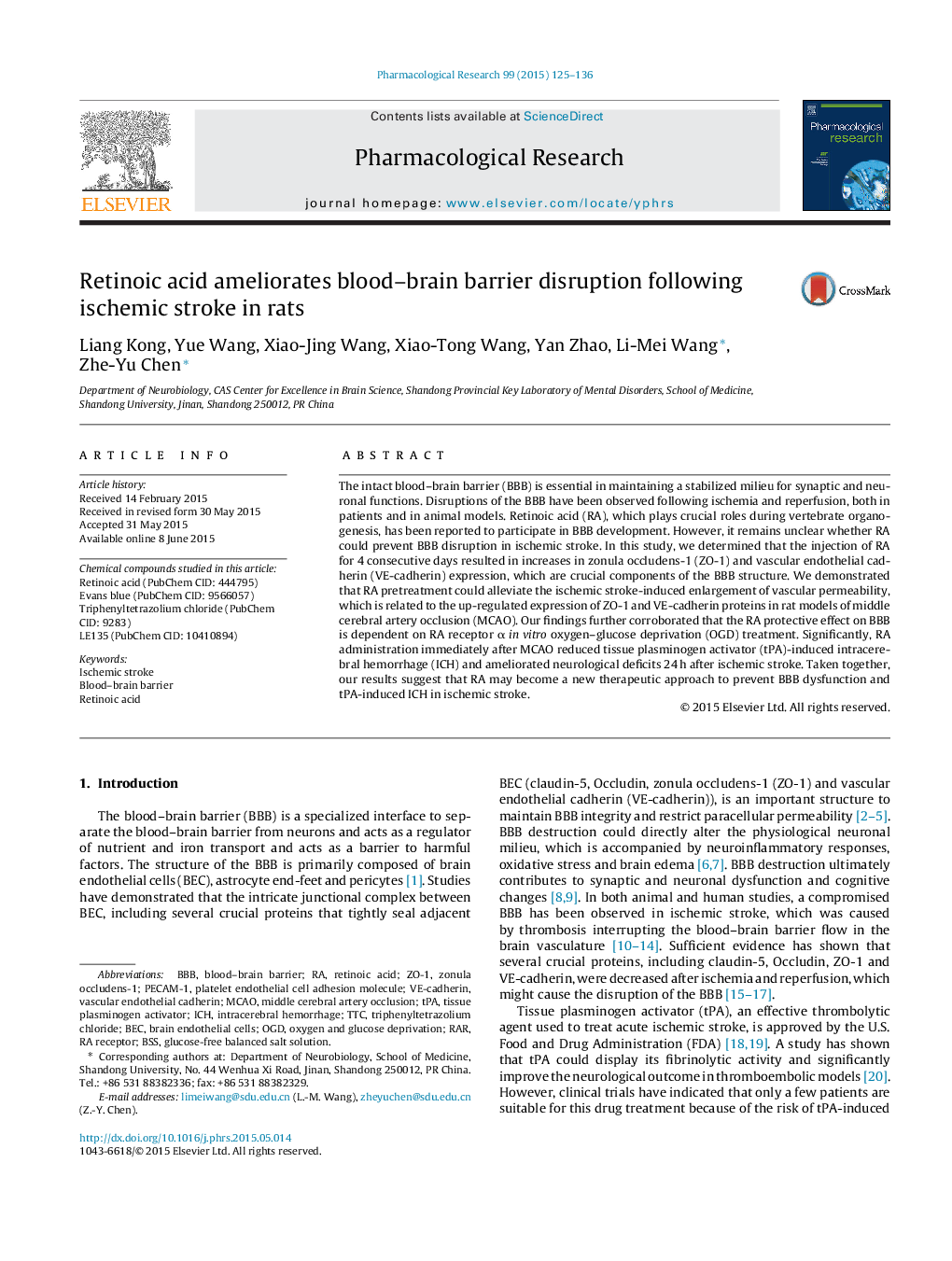| Article ID | Journal | Published Year | Pages | File Type |
|---|---|---|---|---|
| 5843734 | Pharmacological Research | 2015 | 12 Pages |
The intact blood-brain barrier (BBB) is essential in maintaining a stabilized milieu for synaptic and neuronal functions. Disruptions of the BBB have been observed following ischemia and reperfusion, both in patients and in animal models. Retinoic acid (RA), which plays crucial roles during vertebrate organogenesis, has been reported to participate in BBB development. However, it remains unclear whether RA could prevent BBB disruption in ischemic stroke. In this study, we determined that the injection of RA for 4 consecutive days resulted in increases in zonula occludens-1 (ZO-1) and vascular endothelial cadherin (VE-cadherin) expression, which are crucial components of the BBB structure. We demonstrated that RA pretreatment could alleviate the ischemic stroke-induced enlargement of vascular permeability, which is related to the up-regulated expression of ZO-1 and VE-cadherin proteins in rat models of middle cerebral artery occlusion (MCAO). Our findings further corroborated that the RA protective effect on BBB is dependent on RA receptor α in vitro oxygen-glucose deprivation (OGD) treatment. Significantly, RA administration immediately after MCAO reduced tissue plasminogen activator (tPA)-induced intracerebral hemorrhage (ICH) and ameliorated neurological deficits 24 h after ischemic stroke. Taken together, our results suggest that RA may become a new therapeutic approach to prevent BBB dysfunction and tPA-induced ICH in ischemic stroke.
Graphical abstractDownload high-res image (79KB)Download full-size image
